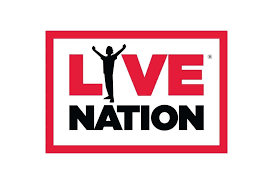Summary
The global festival market, particularly in Italy, has experienced a period of recovery post-pandemic, with a focus on revitalizing cultural and artistic life while adhering to public health guidelines. Italian festivals, which were deeply ingrained in the cultural fabric pre-pandemic, saw a notable decline in attendance due to COVID-19. For instance, according to Effettofestival, 44% of Italian festivals reported a 25% to 60% drop in attendance, with 35% experiencing a drop of more than 60%. However, a positive sign was that festivals with less than a 10% reduction in attendance doubled compared to those with a 90% drop. Adapting to the situation, 48% of festivals adopted a hybrid format, and 24% initiated live streaming.
The sector's turnover reflects this impact, with the "Organization of conventions and fairs" category observing a significant increase (+48%) but likely facing a downturn in 2020 due to the pandemic. Notably, the Sanremo Festival still managed to generate around 38 million euros in 2021 from advertising, maintaining its status as Italy's most popular festival, with viewership shares around 52.2% in 2020. Despite the challenges, the festival market in Italy and globally is on a path toward recovery and adaptation.
Recovery and Trends in Italy's Festival Landscape Post-Covid
The Italian festival market is in a period of resurgence following the impact of the Covid-19 pandemic, which brought the vibrant cultural scene to a halt. This return to form is occurring across various types of festivals, with music, film, and literary events garnering particular attention from both organizers and attendees. Despite the pandemic-related challenges, Italians have demonstrated unwavering enthusiasm for music festivals. As festivals begin to spring back to life, about 41 percent of Italians indicate regular attendance, while an almost equal number have been to a few. The data suggests a fairly even distribution in terms of frequency, with around a third attending once, twice, or more than three times annually. The appeal of music festivals extends beyond Italian borders, with more than 60 percent of participants willing to travel internationally for such events. Their motivations span the desire for the communal atmosphere, the opportunity to hear various artists, and social expansions. Preferences in style heavily lean toward Rock and Pop, with other genres following behind. This demonstrates a robust domestic interest in this culturally enriching activity. Tens and tens of thousands of employees make up the fabric of the festival workforce, playing a crucial economic role, including "cultural tourism," which contributes significantly to the national and local economies.
Film festivals hold an esteemed place in Italian culture, engaging a primarily young, educated, middle-class audience that demonstrates a strong propensity for cultural consumption. These gatherings attract attendees multiple times a year, highlighting the statutory presence these events have within the Italian cultural landscape. The information regarding such festivals is predominantly shared through social networks, both offline and online, indicating a more personalized and communal approach to cultural participation. The true scope of the festival market in Italy is difficult to estimate due to the vast number of unsupported or privately funded events. Nevertheless, around 2,000 festivals are believed to occur annually, covering a wide array of cultural expressions. The financial model for festivals is shifting. While public funding remains a vital lifeline, an increasing reliance on private funding and sponsorships is visible. The pandemic, however, has forced a pivot in operations, with many festivals adopting online or hybrid formats, underscoring the sector's adaptability.
Major Players Steering the Italian Festival Landscape
The Italian festival market, characterized by its diverse and cultural fabric, is sustained by a number of prominent organizations and entities, which stand out as the main actors in the realm of festivals. Below are brief overviews of some of the major players mentioned in the text, each contributing in its unique way to the richness of the Italian festival experience.
- Agis (Associazione Generale Italiana dello Spettacolo) : Agis is a key institution in the Italian live entertainment landscape. It plays an essential role in collecting data, representing the interests of live shows and entertainment industries, and providing insights on festival dynamics, such as attendance and economic impact.
- Festicket : As Europe's leading music festival and travel booking platform, Festicket provides customers with an accessible and streamlined process for attending their favorite festivals. By estimating market growth and trends, Festicket not only serves consumers but also offers valuable market data.
- AFIC (Associazione dei Festival Italiani del Cinema) : AFIC represents and supports Italian film festivals, including several that receive government funding. Its research and analysis help in comprehending the financing models and impacts of film festivals on local culture and the economy.
- ItaliaFestival : By connecting 37 festivals as well as seven festival networks, ItaliaFestival acts as a focal point for promoting interdisciplinary cultural events and ensuring their joint interests are addressed at a national and international level.
- I-Jazz : As an association founded to bring together the most significant Italian jazz festivals, I-Jazz is indicative of the collaborative efforts that enhance the visibility and viability of niche music festivals within the country.
- La Rete dei Festival : Focusing on the development and protection of "Festivals for Emerging Music" in Italy, La Rete dei Festival comprises approximately 50 member festivals, highlighting the support network for up-and-coming talents in the Italian music scene.
- Riff (Italian Comic Book Festival Network) : Riff unites 35 festivals dedicated to the vibrant world of comics, providing a shared organizational platform for events that celebrate the comic arts and attract artists, enthusiasts, and industry professionals.
Each of these entities plays a significant role in curating the Italian festival experience, whether through the aggregation of festivals under a common banner, the provision of vital market data, or direct operational support for the cultural events that light up Italy throughout the year. As the market recovers and evolves from the pandemic-induced hiatus, these players
to understand this market
Detailed content
 Inforamtion
Inforamtion
- Number of pages : 30 pages
- Format : Digital and PDF versions
- Last update : 22/12/2021
 Summary and extracts
Summary and extracts
1 Market Overview
1.1 Definition and presentation
A festival is defined as a cultural event organized for the purpose of bringing together, for one or more days, different types of people interested in this type of activity related to art, entertainment or more generally to leisure.
In Italy, prior to the pandemic, festivals were very deeply rooted in popular culture; now, thanks to security measures to cope with Covid19 this type of event has begun to be organized again.
Globally, the festival market can be said to be in a post-pandemic growth and recovery phase mainly due to the increasing popularity that music festivals are experiencing.
Even in Italy, the market can be defined as recovering after a period of stop due to the recent pandemic.
In Italy, the most popular festivals are music festivals, but not only.
The top 10 festivals held in Italy in 2020 were: the Kappa FuturFestival (Turin), Polifonic (Monopoli), Decibel Open Air (Florence), Locus Festival (Locorotondo), FRAC Festival (Catanzaro), Ypsigrock (Castelbuono), Movement (Turin), MORE Festival (Venice), Home Festival (Venice) and finally Club to Club (Turin).
The most globally known Italian music festival is the Sanremo Festival.
however, it is important not to forget that Italy's vast cultural heritage makes it a great place for many other types of festivals. These include film festivals such as the Venice Film Festival, the Rome Film Festival and many others.
Still another particularly popular type of festival in Italy is the literary festival. These festivals include events such as the Salone del Libro in Turin, the Festivaletteratura in Mantua, and Lucca Comics, which is the most popular comics festival in Italy.
An important trend in this sector is the post-Covid recovery. At a delicate time such as the one we are currently experiencing, in which cities are slowly starting to reorganize events open to the public again, measures need to be taken to commit to revitalizing the cultural and artistic life of Italy's historic centers. In order to do this, it is necessary to organize events in line with the directives for the protection of public health dictated by the government.
 List of charts
List of charts
- Turnover of the sector "Organization of conventions and fairs"
- How often do you go to music festivals?
- How many festivals do you go to per year?
- Where do you go for music festivals?
- What kind of music do you prefer to hear at a music festival?
All our studies are available online in PDF format
Take a look at an example of our research on another market!
Latest news
Companies quoted in this study
This study contains a complete overview of the companies in the market, with the latest figures and news for each company. :
 Choosing this study means :
Choosing this study means :
Access to more than 35 hours of work
Our studies are the result of over 35 hours of research and analysis. Using our studies allows you to devote more time and added value to your projects.
Benefit from 6 years' experience and over 1,500 industry reports already produced
Our expertise enables us to produce comprehensive studies in all sectors, including niche and emerging markets.
Our know-how and methodology enable us to produce reports that offer unique value for money.
Access to several thousand articles and paid-for data
Businesscoot has access to all the paid economic press as well as exclusive databases to carry out its market research (over 30,000 articles and private sources).
To enhance our research, our analysts also use web indicators (semrush, trends, etc.) to identify market trends and company strategies. (Consult our paying sources)
Guaranteed support after your purchase
A team dedicated to after-sales service, to guarantee you a high level of satisfaction. +44 238 097 0676
A digital format designed for our users
Not only do you have access to a PDF, but also to a digital version designed for our customers. This version gives you access to sources, data in Excel format and graphics. The content of the study can therefore be easily retrieved and adapted for your specific needs.
 Our offers :
Our offers :
the festival market | Italy
- What are the figures on the size and growth of the market?
- What is driving the growth of the market and its evolution?
- What is the positioning of companies in the value chain?
- Data from several dozen databases
5 reports pack (-15%) IT Italy
- 5 reports at €75.6 excluding VAT per study to choose from our Italian catalogue for 12 months
- Save 15% on additional studies purchased
- Choose to be refunded any unused credit at the end of the 12-month period (duration of the pack)
See the terms and conditions of the pack and the refund of unused credit.






 Music: billions in the concert business - 04/01/2024
Music: billions in the concert business - 04/01/2024
 Vivendi demerger project well received - 14/12/2023
Vivendi demerger project well received - 14/12/2023















